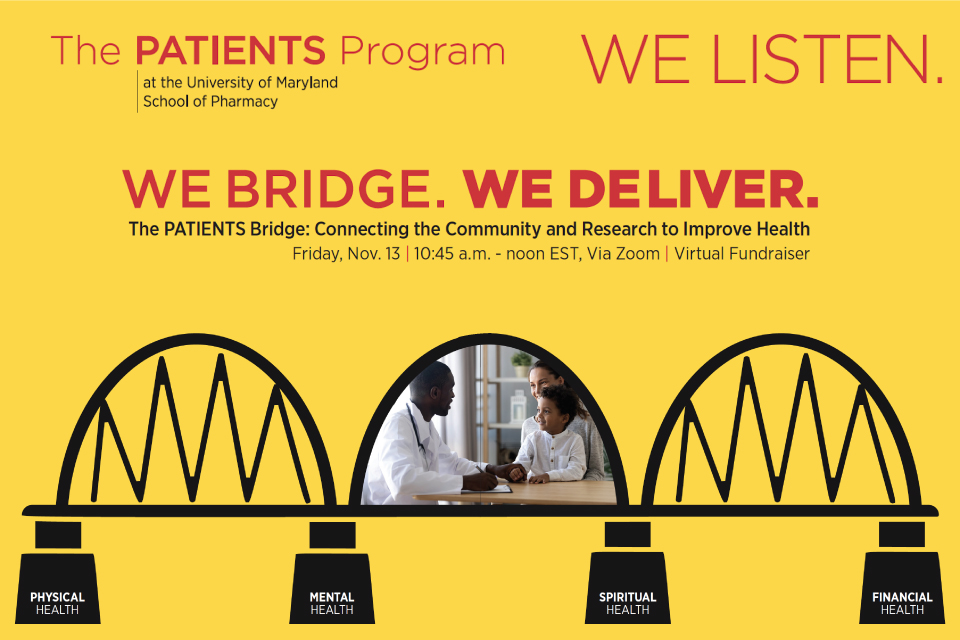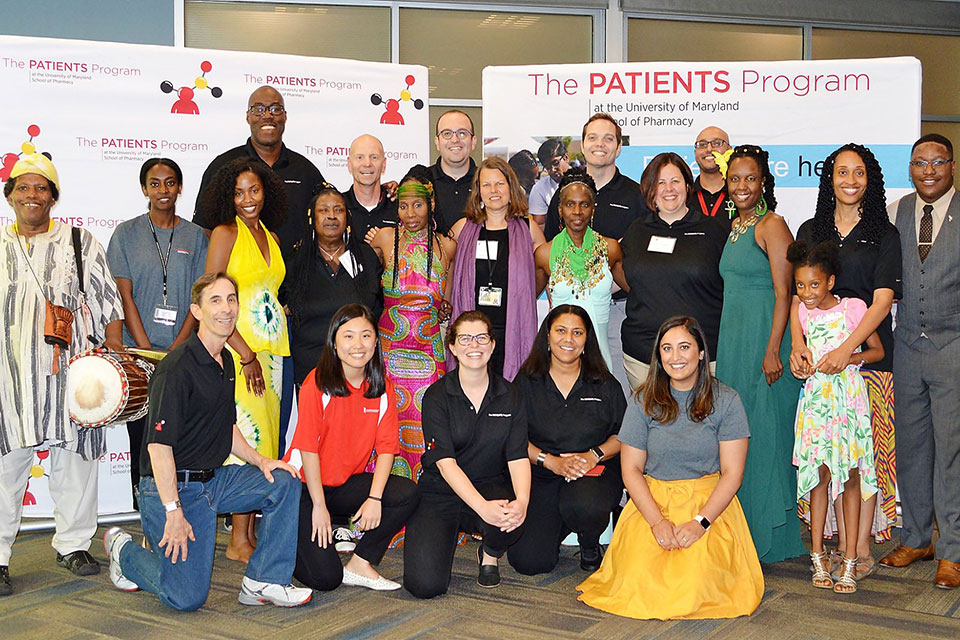SOP’s Mullins Appointed to Big Data for Patients Steering Committee
Committee will guide new program designed to provide specialized training for patients and advocates on the emerging field of data science.
By Malissa Carroll
January 14, 2016
Daniel Mullins, PhD, professor and chair of the Department of Pharmaceutical Health Services Research (PHSR) at the University of Maryland School of Pharmacy, has been appointed by the Reagan-Udall Foundation for the Food and Drug Administration (FDA) to serve on the steering committee of its new Big Data for Patients (BD4P) program. Established in 2015, this program provides training for patients and advocates on the emerging field of data science (big data), equipping them with the knowledge and tools that they will need to impact big data issues through their interactions with researchers, health care professionals, policy makers, and other patients.
“Ensuring that patients are well-informed about big data, including the potential benefits and risks associated with this emerging field, is vital to cultivating a health care system in which treatment decisions are informed by the best available evidence and implemented in such a manner that they improve patient outcomes,” says Mullins. “When patients’ voices and needs are used to steer research initiatives, the results that emerge are more meaningful to them. As a result, researchers across the country must be encouraged to embrace the value and central role that patients and advocates can play in research — not only as participants, but also as co-developers of that research.”
Big data in health care can refer to information collected from a wide range of sources – such as electronic health records (EHRs), electronic medical records (EMRs), patient reported outcomes (PROs), and physicians’ notes – with the goal to improve patient care. Designed to address the need for patients to understand the potential benefits and challenges associated with big data, the BD4P program aims to develop a network of informed and empowered patients and advocates who are knowledgeable about big data and understand how it is used in health care.
A member of the program’s steering committee, Mullins will work alongside the other 11 committee members to provide strategic guidance on and oversight of BD4P operations. The committee will review and approve the BD4P charter, program development, and implementation plan, as well as review partnership and collaboration proposals submitted to the program.
“In health care, big data is patient data,” says Mullins. “As the United States continues to shift to a more patient-centered approach to providing care, and the methods that researchers use to assess, integrate, and interpret this data become more complex, it is crucial that patients and advocates receive the proper training to engage with other stakeholders to create more beneficial and patient-centered research initiatives. The BD4P program was developed in collaboration with patients and key stakeholders, and leverages the collective knowledge and technical expertise of those stakeholders to create a state-of-the-art data science training program for patients and advocates.”
Mullins was asked to apply to serve on the program’s steering committee by James Polli, PhD, the Shangraw/Noxell Endowed Chair in Industrial Pharmacy and Pharmaceutics in the Department of Pharmaceutical Sciences (PSC) at the School of Pharmacy, who learned about the launch of the new program through his work as a principal investigator with the University of Maryland’s Center of Excellence in Regulatory Science and Innovation (M-CERSI), which is funded by the FDA to help modernize and improve how drugs and medical devices are reviewed and evaluated.
“As the director of the Patient-Centered Involvement in Evaluating the Effectiveness of Treatments (PATIENTS) program at the University of Maryland, Baltimore, and the recipient of numerous grants and awards from organizations such as the Agency for Healthcare Research & Quality (AHRQ) and the Patient-Centered Outcomes Research Institute (PCORI), Dr. Mullins has proven himself to be an outstanding researcher in the field of patient-centered outcomes research,” says Polli. “I can think of no one more qualified for this appointment, and I cannot wait to learn about all that the program accomplishes under his guidance.”
Established by Congress in 2007, the Reagan-Udall Foundation for the FDA is a non-profit organization that aims to further the mission of the FDA by advancing regulatory science and research. It operates independently of the FDA, driving and supporting regulatory science research by fostering public-private partnerships among the FDA, academia, other government agencies, industry, and patient advocacy groups, and providing support for ongoing training and scientific fellowships.



